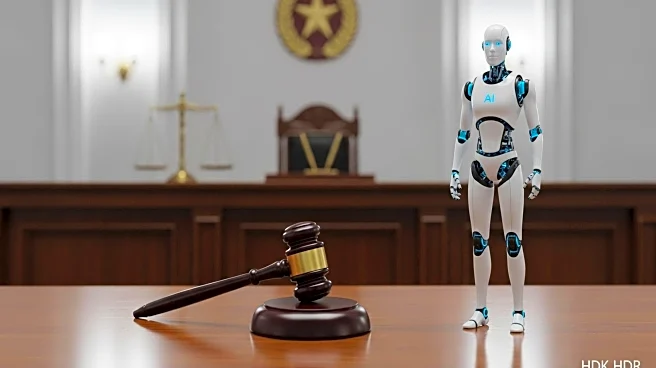What's Happening?
Bankruptcy courts across the United States are imposing sanctions on attorneys who misuse AI technology in their legal filings. Judges have penalized lawyers for submitting documents with fake AI-generated citations, a practice that has gained attention due to the increasing use of AI in legal research. Recent incidents in Illinois, South Carolina, and Alabama have highlighted the issue, with courts requiring attorneys to certify the accuracy of their filings under Rule 9011. Some courts have issued specific orders regarding AI use, while others rely on existing rules to ensure compliance.
Why It's Important?
The crackdown on AI misuse in legal filings reflects the growing concern over the reliability and ethical use of technology in the legal profession. As AI becomes more integrated into legal processes, ensuring accuracy and preventing misinformation is crucial. The sanctions serve as a warning to legal professionals about the consequences of relying on AI without proper verification. This development may lead to stricter regulations and guidelines for AI use in law, impacting how attorneys conduct research and prepare cases. It also raises questions about the balance between technological advancement and ethical practice in the legal field.
What's Next?
Courts may continue to refine their rules and guidelines regarding AI use, potentially leading to more uniform standards across jurisdictions. Legal professionals might need to undergo additional training to understand AI's capabilities and limitations. The industry could see increased collaboration between technology developers and legal experts to create tools that ensure accuracy and compliance. As AI technology evolves, ongoing dialogue about its role in law will be essential to address ethical concerns and optimize its benefits.









